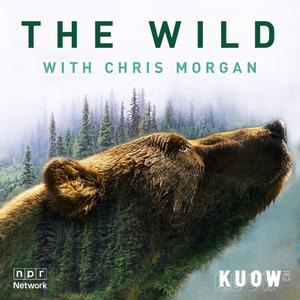
The Wild with Chris Morgan
KUOW News and Information
"THE WILD with Chris Morgan" explores how nature survives and thrives alongside (and often despite) humans. Taking listeners across the Pacific Northwest and around the world, host Chris Morgan explores wildlife and the complex web of ecosystems they inhabit. He also tells the stories of people working in and protecting the wild around us.
- 50 minutes 59 secondsZoë Schlanger: Do plants think? Why eating a salad may never feel the same again
Maybe you’re eating an apple, or a piece of lettuce right now. Could be a broccoli stem or perhaps a lovely juicy tomato. If you are, are you wondering how intelligent that plant is? I’d guess not. But here’s a conversation that might make you think twice.
Zoë Schlanger, a science writer for the Atlantic, has written an eye-opening book on the topic. It’s called The Light Eaters: How the Unseen World of Plant Intelligence Offers a New Understanding of Life on Earth.
On today’s episode, Chris sits down with Zoë to talk about what it means for a plant to be intelligent, even without a brain, and how this revolutionary field of research might help us look at plant life a little differently.
We’d love to hear what you think of THE WILD. Which shows did you like the best? What would you like to hear more of? If you have a moment please fill out this quick survey. Your feedback will help us plan for future episodes. Thanks!
This show would not be possible without listener support. You can help us continue to create this special immersive storytelling by donating at kuow.org/donate/thewild. Thank you.
For some great photographs and clips from our journey through the national parks, check out our Instagram @thewildpod and @chrismorganwildlife.
THE WILD is a production of KUOW, Chris Morgan Wildlife, and the NPR Network. This episode was produced by Lucy Soucek and edited by Jim Gates. THE WILD is hosted, produced and written by Chris Morgan. Fact checking by Apryle Craig. Our theme music is by Michael Parker.
See omnystudio.com/listener for privacy information.
14 January 2025, 8:05 am - 47 minutes 47 secondsGlacier Bay National Park: Life after ice - the birth of a river
Melting ice is usually bad news, but this place in Alaska has turned from frozen to flourishing in just 200 years.
Nestled in southeast Alaska, the stunning and famous Glacier Bay National Park is often called a “living laboratory.” Scientists from all over the world come here to study ecological succession: the step-by-step return of plants, insects, forests and animals. It’s a unique place to do that because just a couple hundred years ago, this whole landscape was covered in ice. But then, the ice started melting, uncovering a clean slate for nature to show us how she creates a flourishing ecosystem.
On this episode of THE WILD, Chris time travels through Glacier Bay National Park to discover how fast biodiversity can build when nature is left alone, in the surprising spectacle of life after ice.
This show would not be possible without listener support. You can help us continue to create this special immersive storytelling by donating at kuow.org/donate/thewild. Thank you.
For some great photographs and clips from our journey through the national parks, check out our Instagram @thewildpod and @chrismorganwildlife.
THE WILD is a production of KUOW, Chris Morgan Wildlife, and the NPR Network. This episode was produced by Lucy Soucek, written by Christopher Preston and edited by Jim Gates. THE WILD is hosted, produced and written by Chris Morgan. Fact checking by Apryle Craig. Our theme music is by Michael Parker.
See omnystudio.com/listener for privacy information.
7 January 2025, 8:05 am - 30 minutes 1 secondThe Wild presents How Wild: Solitude
We are taking a break over the holidays in order to finish up our series about national parks. We’ll be back in your feed on January 7 with a visit to Glacier Bay National Park in southeast Alaska. We’ll learn how the trickles of chilly glacial meltwater are creating a flourishing ecosystem.
But in the meantime, I wanted to share an episode from a podcast I think you’ll really like called How Wild. It’s from our friends at KALW Public Media and the NPR Network. The podcast looks at the meaning of wilderness, sixty years since the passage of the Wilderness Act of 1964.
The law set aside areas within national parks and forests and other federal public lands for an extra level of protection. These wilderness areas have to be “undeveloped” and “natural” and they have to have opportunities for “primitive, unconfined recreation” and “solitude.”
But so much has changed since the passage of the Wilderness Act. In this episode, host Marissa Ortega-Welch looks at solitude and what that means these days with so many people hitting the trails.
See omnystudio.com/listener for privacy information.
10 December 2024, 8:01 am - 29 minutes 51 secondsA river runs through it ... once again (reprise)
It started as a glacier. Then, about 13,000 years ago, it was a trickle, then a stream, and eventually a rushing river meandering through the Olympic Peninsula. For thousands of years, life thrived off the ecosystem served by the Elwha River that fed into to the Strait of Juan De Fuca. Then it stopped. A century ago, a dam was built to harness the power of the water and convert it into electricity. The salmon that the Lower Elwha Klallam Tribe relied on were cut off from their spawning grounds.
Ten years ago, that dam was taken down. In this special reprise episode, we look at the impact of the dam removal and how life in and around the Elwha is fighting its way back.
This show would not be possible without listener support. You can help us continue to create this special immersive storytelling by donating at kuow.org/donate/thewild. Thank you.
THE WILD is a production of KUOW, Chris Morgan Wildlife, and the NPR Network. This episode was produced by Matt Martin and edited by Jim Gates. THE WILD is hosted, produced and written by Chris Morgan. Fact checking by Apryle Craig. Our theme music is by Michael Parker.
See omnystudio.com/listener for privacy information.
19 November 2024, 8:01 am - 28 minutes 39 secondsLeigh Ann Henion: Darkness, and the creatures of the night
Nature writer Leigh Ann Henion has spent countless hours uncovering mysteries of the darkness that unfold while we’re asleep. She’s explored bats, moths, glow worms, spotted salamanders, and she’s written a new book about it called Night Magic: Adventures Among Glowworms, Moon Gardens, and Other Marvels of the Dark.
Today, Chris talks with Leigh Ann Henion about what we can find in the darkness and how we can preserve it, even from our own back porch.
This show would not be possible without listener support. You can help us continue to create this special storytelling by donating at kuow.org/donate/thewild. Thank you.
THE WILD is a production of KUOW, Chris Morgan Wildlife, and the NPR Network. This episode was produced by Lucy Soucek and edited by Jim Gates. The Wild is hosted, produced and written by Chris Morgan. Fact checking by Apryle Craig. Our theme music is by Michael Parker.
See omnystudio.com/listener for privacy information.
12 November 2024, 8:01 am - 47 minutes 21 secondsGreat Smoky Mountains National Park: Fireflies in synchrony
Once a year they come out, by the thousands. Fireflies. But these aren’t just any fireflies. These are Photinus Carolinas, also known as synchronous fireflies They blink on and off together. It’s an amazing site. On this episode, I head to Great Smoky Mountains National Park to experience the synchronous fireflies and learn how light from human development is threatening the future of these delicate, glowing insects and what the park is doing to try to protect them.
This show would not be possible without listener support. You can help us continue to create this special immersive storytelling by donating at kuow.org/donate/thewild. Thank you.
For some great photographs and clips from our journey through the national parks, check out our Instagram @thewildpod and @chrismorganwildlife.
THE WILD is a production of KUOW, Chris Morgan Wildlife, and the NPR Network. This episode was produced by Matt Martin and edited by Jim Gates. THE WILD is hosted, produced and written by Chris Morgan. Fact checking by Apryle Craig. Our theme music is by Michael Parker.
See omnystudio.com/listener for privacy information.
5 November 2024, 8:01 am - 46 minutes 47 secondsCaroline Tracey: How this tiny bird could save salt lakes
Four times in the past decade Lake Abert has completely dried up, a barren lakebed encrusted with salt. Salt lakes are among the world's most threatened ecosystems. Lack of water could lead to many of these lakes permanently drying up in the American West.
But there is one tiny bird that could change all that. The Wilson’s Phalarope depends on salt lakes on their 6500-mile migration between North and South America. There is a movement to get the phalarope listed as a threatened species by the federal government as a way to protect the habitat they need to survive.
Caroline Tracey is an environment reporter who grew up in the American West - a place that flows through so much of her work. She recently signed a book deal for a memoir about her love of salt lakes - these often-ignored ecosystems that are crucial to the world’s water cycle, migratory bird populations, and human health.
This show would not be possible without listener support. You can help us continue to create this special immersive storytelling by donating at kuow.org/donate/thewild. Thank you.
For some great photographs and clips from our journey through the national parks, check out our Instagram @thewildpod and @chrismorganwildlife.
THE WILD is a production of KUOW, Chris Morgan Wildlife, and the NPR Network. This episode was produced by Matt Martin and edited by Jim Gates. THE WILD is hosted, produced and written by Chris Morgan. Fact checking by Apryle Craig. Our theme music is by Michael Parker.
See omnystudio.com/listener for privacy information.
29 October 2024, 7:01 am - 3 minutes 26 secondsChris remembers Bear 399
Chris remembers Bear 399, "The Queen" of Grand Teton National Park that was struck and killed by a vehicle near Jackson Hole, Wyoming on Tuesday, October 22.
You can see the trailer of the PBS Nature documentary on Bear 399 here.
See omnystudio.com/listener for privacy information.
23 October 2024, 10:38 pm - 50 minutes 59 secondsEverglades National Park: Invasion of the Burmese pythons (reprise)
In the Florida Everglades, the Burmese python is an invasive species that's close to triggering an ecological collapse. We'll head out with python hunters who track down these massive snakes for a bounty. Then we wade through the waste deep murky waters of the Everglades to see what researchers are learning about Burmese pythons in their waning hopes to remove them from this fragile tropical wilderness.
This show would not be possible without listener support. You can help us continue to create this special immersive storytelling by donating at kuow.org/donate/thewild. Thank you.
For some great photographs and clips from our journey through the national parks, check out our Instagram @thewildpod and @chrismorganwildlife.
THE WILD is a production of KUOW, Chris Morgan Wildlife, and the NPR Network. This episode was produced by Lucy Soucek and edited by Jim Gates. THE WILD is hosted, produced and written by Chris Morgan. Fact checking by Apryle Craig. Our theme music is by Michael Parker.
See omnystudio.com/listener for privacy information.
22 October 2024, 7:01 am - 36 minutes 29 secondsCuyahoga Valley National Park: Toxic wasteland to ecological champion
Cuyahoga Valley National Park is nestled between Akron and Cleveland, Ohio. It once was an industrial wasteland, filled with debris from the nearby auto factories. The Cuyahoga river was so polluted that it literally caught fire. That fire was a moment that sparked an environmental movement. But I'm headed upstream. I'm going to follow the river and its story from its grim past to becoming a national park.
We’ll look at how a toxic dump was transformed into a national park and a thriving ecosystem, teaming with life.
THE WILD would not be possible without listener support. You can help us continue to create this special immersive storytelling by donating at kuow.org/donate/thewildnotes. Thank you!
For some great photographs and clips from our journey through the national parks, check out our Instagram @thewildpod and @chrismorganwildlife.
THE WILD is a production of KUOW, Chris Morgan Wildlife, and the NPR Network. This episode was produced by Matt Martin and edited by Jim Gates. THE WILD is hosted, produced and written by Chris Morgan. Fact checking by Apryle Craig. Our theme music is by Michael Parker.
See omnystudio.com/listener for privacy information.
15 October 2024, 7:01 am - 45 minutes 10 secondsThe Wild presents The Wide Open: Balancing the needs of endangered species and humans
We’re on a short break as we finish working on our stories for our series about America’s National Parks. I can’t wait to share with you what we’ve learned. Amazing stuff. We’ll be back with new episodes on October 15.
But today, I’d like to play an episode of a podcast from our friends at Montana Public Radio and the Montana Media Lab. It’s called The Wide Open and tells stories about the places where people come together and fall apart. It’s a new podcast and this is their first episode. It’s about the Endangered Species Act, and what that 50-year-old legislation says about living with wildlife and living with each other.
You can learn more about The Wild Open and listen to more episodes here.
THE WILD would not be possible without listener support. You can help us continue to create this special immersive storytelling by donating at kuow.org/donate/thewildnotes. Thank you!
See omnystudio.com/listener for privacy information.
1 October 2024, 7:01 am - More Episodes? Get the App
Your feedback is valuable to us. Should you encounter any bugs, glitches, lack of functionality or other problems, please email us on [email protected] or join Moon.FM Telegram Group where you can talk directly to the dev team who are happy to answer any queries.
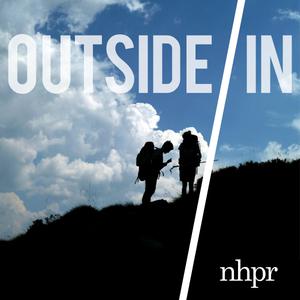 Outside/In
Outside/In
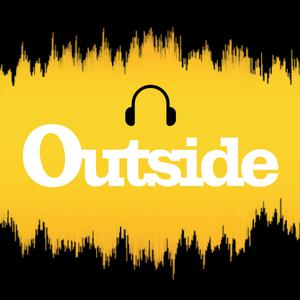 Outside Podcast
Outside Podcast
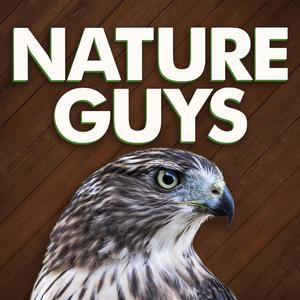 Nature Guys
Nature Guys
 Sidedoor
Sidedoor
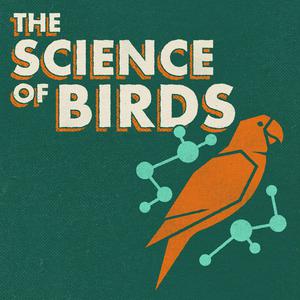 The Science of Birds
The Science of Birds
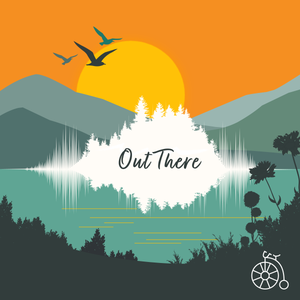 Out There
Out There